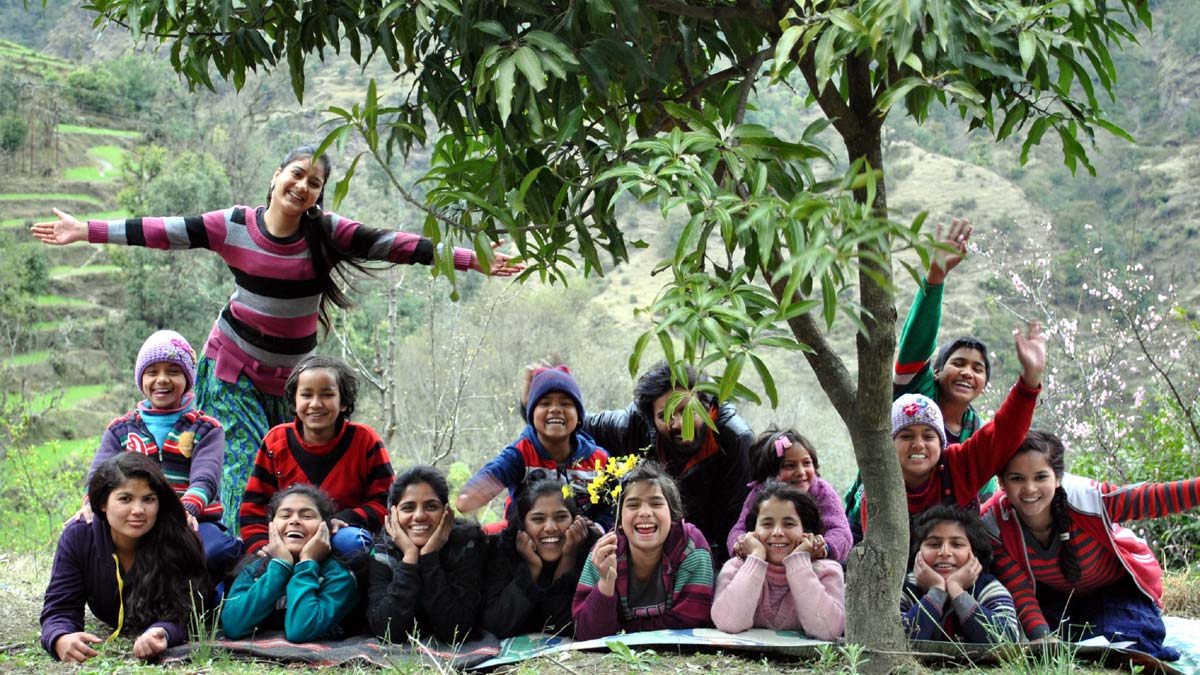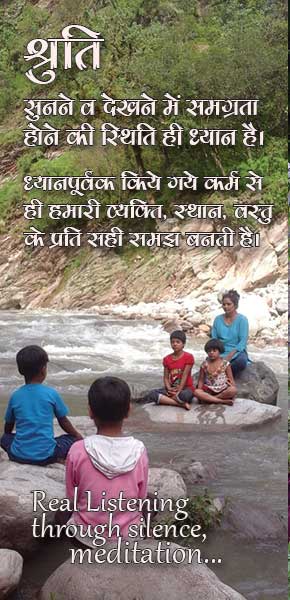Education at SNC is not based on the book but on the brain, not on gathered information but on understanding and creatively responding. The entire surrounding without, and the world of emotions and thoughts within, constitute a Book of Life from which education takes place. Printed books are but pages and chapter are of that book of life from which through dialogue and meditation, teacher and taught learn.
- Shruti: Meditation cum Silence, observation, looking, listening to and feeling the entirety of what is going on both within one’s surroundings as well as inward provides an opportunity for one to gain a greater understanding of oneself as well as the affect they have on others and the environment around them. Participants learn to gain astute awareness of the truth of reality in the present moment as well as the physical affects (sensations) of one’s emotions, before hastily reacting to issues or troubling situations much less clinging to pleasurable or enjoyable situations, so that they can learn to live life in harmonious relationships with one another.
- Swadhyay: When one has the inclination learn on one’s own, only then does their brain develop holistically. Self-learning is a form of study and self-observation that occurs as those genuine questions arise in relation to one’s current environment, atmosphere or circumstances.
- Samvad: In learning to participate in productive dialog among multi-generations / various age groups, children also learn to face and overcome their fears, express themselves articulately, as well as ask important questions, as they foster their own curiosity and exploration of themselves and the world around them.
- Samiksha: Non-judgmental critique sessions are a way for each individual to, both evaluate themselves and others, as well as give and receive constructive feedback on various aspects of their lives and learning at Shyamavan. Participation, collaboration, openness and sharing are encouraged as we create a safe environment in which to act as mirrors for each other through our relationships.
- Practical Activities and Experiential Learning: To foster curiosity, exploration and discovery over a wide span of academic and arts subjects such as: Math, Language (Sanskrit, Hindi & English), Science, Geography, History, Visual Arts (painting, sculpture, sewing, embroidery, knitting, jewelry design and other crafts), Music, Dance, Drama, Physical Education and Yoga.
- Swawalamban: In order to create a healthy prosperous society, it is crucial that individuals work collaboratively (rather than against each other) towards the society’s collective self-sustainability.

